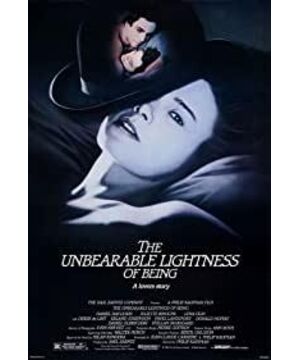The plot of the film revolves around the complex relationship between Thomas, Theresa, and Sabina. The seemingly vulgar love triangle contains Kundera’s philosophical thinking about life attitude, which is the work of the Greek philosopher Parmenides. The light and heavy words. Sabina's strong, independent, and feather-light values made her unable to bear the weight of a secular marriage or the weight of formal kitsch. She rejected the cohabitation with Franz, defied formalist political marches, and hated kitsch music and fake flower decorations in restaurants. She chose to flee, flee the family, flee the motherland, flee the marriage... She escaped everything, but she could not escape the emptiness and loneliness brought about by the unbearable lightness of life. Teresa is fragile and sensitive. What she needs is a life of burden. She can't accept sex without love, can't stand Thomas' physical derailment, can't indifferently watch the country's sovereignty be trampled on. She needs to fill the emptiness brought about by the unbearable lightness of life with "love". Thomas and Karenin are both "heavy" in her emotional world. She enjoys the weight of life, just as she enjoys Thomas' heavy body during sex. Thomas is a contradiction between light and heavy. He once enjoyed the emptiness and freedom brought by the lightness of life like Sabina. When Teresa appeared in his life, fate began to reverse. In Kundera’s original work, Thomas regards Teresa’s appearance as the inevitable caused by six accidents in his life. This fatalistic encounter determines Thomas’ fate. Unfortunately, the two people’s acquaintance is downplayed in the movie. Fate. Teresa's dependence gradually changed Thomas' attitude towards life. Love made him unable to bear the lightness of life, made him give up his freedom and dignity and return to Prague, and made him leave the fun-seeking city and retreat to the countryside. "Love in Prague" is an attempt to adapt a classic literature into a classic movie, but the film lacks the original depth in terms of the control of the subject matter and the processing of the plot. The out-of-context philosophy of "light and heavy" keeps the film away from the popularization and popularization of commercial romance films. The film is always hovering between the niche philosophical depth of "light and heavy" and the popular popular love of "love and sex". It did not really grasp the direction of the adaptation of the work. The classic weight of Kundera's original work eventually became this one. The unbearable lightness of the film.
View more about The Unbearable Lightness of Being reviews











